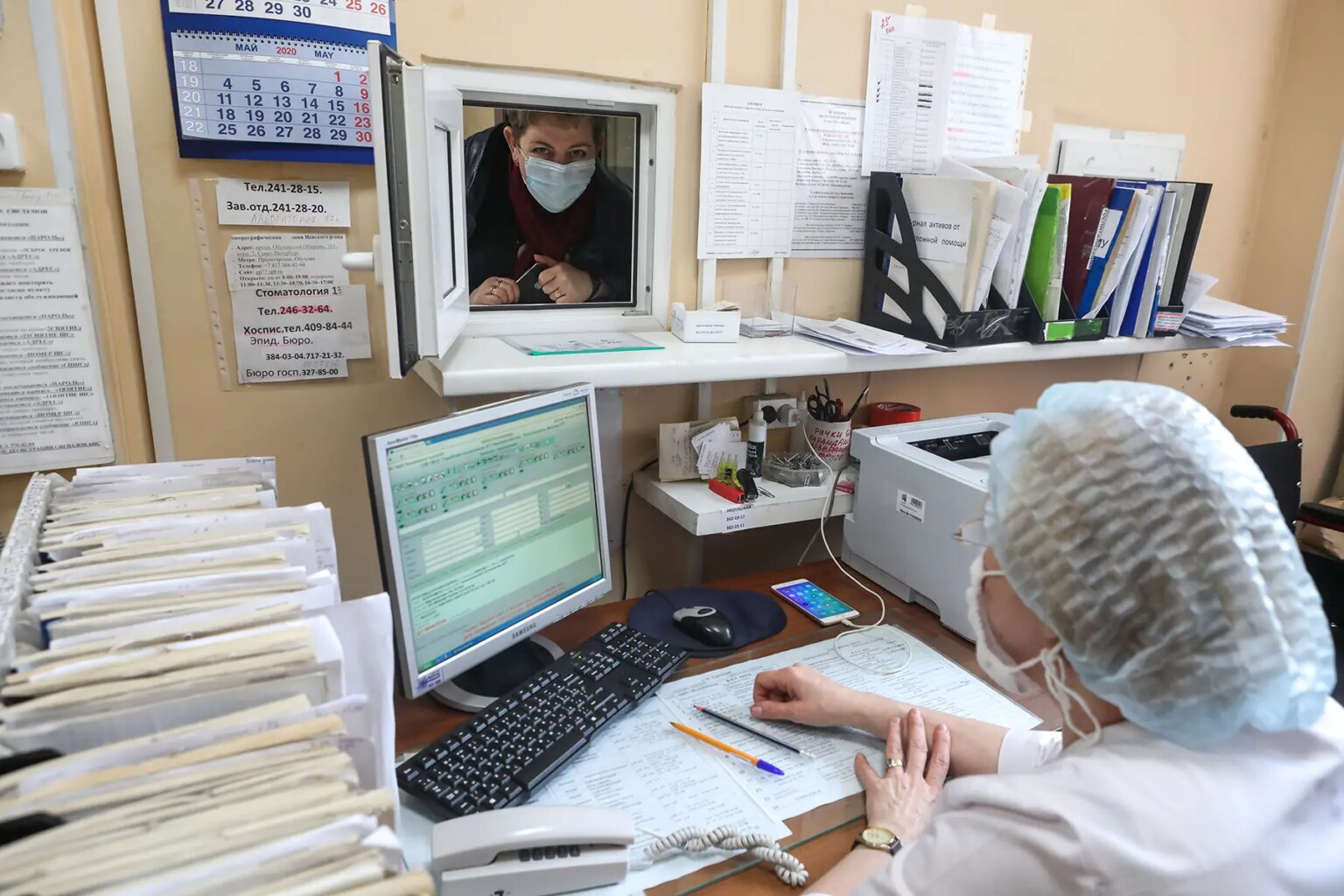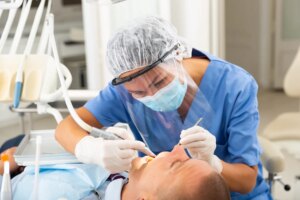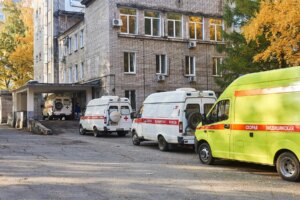When you arrive in Russia, you’ll need to register with a Russian doctor. This guide gives you an idea of where to start with accessing the Russian healthcare system.
There’s also a section at the end of the guide with information on Russian doctors.
Conditions for seeing a Russian doctor
Russian doctors are available through both state services and privately. There have been issues in recent years with low pay for doctors working in the state sector along with declining standards in many state-funded facilities. Visiting a private doctor in Russia is an option. However, it’s more costly and you will need private medical insurance to cover costs.
You will be eligible for state healthcare in Russia as soon as your employer registers you. You can choose which doctor to register with. However, if you’re using state healthcare you will need to ensure that your doctor is contracted to provide statutory care. When you register with a Russian doctor, you will need to show proof of health insurance. See our guide to health insurance in Russia for more information.
Russian doctors, and Russian specialists, work in medical centers, clinics, and hospitals. Most operate by appointment, although you can turn up and sometimes make an appointment for the same day if they are not too busy.
If you live in Moscow, you can register online with a doctor at one of the polyclinics here.
If you’re a non-resident or visitor to Russia not eligible for state-funded health coverage, you will need to take out private health insurance unless your country has a reciprocal healthcare agreement with Russia. You will need to check with your embassy for details of healthcare agreements. The reciprocal healthcare agreement between the UK and Russia ended in January 2016 so UK citizens visiting Russia now have to make medical insurance arrangements prior to visiting the country.
See our guide to health insurance in Russia for more information.
Conditions for seeing a specialist in Russia
Russia has a number of medical specialists working in hospitals and medical centers in larger city areas. To see a Russian specialist, you will need to be referred by your Russian doctor. Some specialist provision is available for free through statutory healthcare. There are some exceptions, such as eye care and dental care. Due to low salaries for state-funded doctors, many of the best medical specialists work in the private sector.
In Moscow, there are a number of specialist public hospitals as well as over 500 polyclinics. These exist alongside private healthcare centers and clinics. They operate in a range of specialist areas such as cardiology, neurology, and pulmonology. Private specialists in Moscow can be accessed without a referral from the doctor but may be expensive.
How to find a Russian doctor
Residents are free to register with the doctor of their choosing. However, you must first check that the doctor provides state-funded healthcare if you want to use the free public healthcare service.
If you want to find a recommended doctor in Russia, you can do so through personal recommendation or through your national embassy. Most embassies will have lists of recommended doctors and medical services for each country.
You can also search for healthcare organizations and browse through the healthcare directory on the Russian Department of Health website. For doctors in Moscow, you can search for clinics, hospitals, specialists and more through the search portal of the Moscow Department of Health website.
You can search for private doctors and specialists in Russia on the European Medical Center and the American Medical Center.
Language issues with Russian doctors and specialists
Language could end up being a barrier in Russia if you don’t speak Russian as not all doctors and specialists will be able to communicate in English. It won’t hurt to learn some basic Russian before your appointment.
You are more likely to find an English-speaking doctor in Moscow and the bigger cities. English-speaking doctors in Russia are more common in private clinics and centers than in public facilities.
See our guide to finding English-speaking doctors abroad for help on this issue.
What to do when seeing a Russian doctor
You can make an appointment with your doctor in Russia either by phone or visiting the clinic or health center where they are based. Appointments are usually made a few days in advance, but if you need urgent treatment you can turn up and try to get a same-day appointment. Most clinics and health centers in Russia don’t have open-door sessions so you will usually have to wait.
You must show proof of health insurance; show either a health card (for state healthcare) or an insurance policy (for private healthcare) before treatment. With private insurance, you pay upfront and get reimbursed by your insurer unless the company has an agreement with the medical establishment where you are treated.
Doctors’ operating times vary according to which establishment they are working in. If you need an out-of-hours appointment, you might be able to be seen by a duty doctor at one of the clinics.
Doctors in Russia can make referrals to specialists or to the hospital as well as issue prescriptions. Prescriptions are not available for free and most medicines in regions other than Moscow are only available through local pharmacists. In Moscow, there is a program where certain groups (e.g., children, pensioners, disabled) receive free medicine or a 50% discount.
Cost of Russian doctors
If you visit a doctor in Russia through public-funded healthcare, there is no charge. As doctors’ wages are poor, there are stories of doctors accepting bribes or trying to charge for services and medicines.
If you visit a private doctor in Russia or are covered by private health insurance, you will normally have to pay the costs upfront and get reimbursed by your insurers. Doctor costs in Russia on the private market will vary, but average doctor costs in Moscow are as follows:
- consultation in a private medical centre R2,000–3,000
- home visit from a specialist R5,000
- if you need examination and treatment, service programs can vary between R10,000 and R50,000
Average costs of medicines in Moscow are R530 for a weekly supply of cold medicine and R700 for a course of antibiotics. A price list for drugs available in Moscow is available here.
Private insurance to cover doctor fees in Russia
If you want to go private rather than use state healthcare, you can choose private health insurance to offset the costs. Costs will vary depending on your health situation and what you want to be covered and insurance plans will vary between companies.
See our guides to health insurance in Russia and on choosing a private health insurance plan for more information.
Emergency medical situations in Russia
Emergency care in Russia is free to everyone regardless of insurance status, however you will need to show proof of health insurance to receive treatment without upfront payment once your condition has stabilised.
This care is in emergency departments and emergency rooms of Russian hospitals which are open 24 hours a day all year round.
The national emergency number in Russia is 112, which will connect you with an operator (Russian-speaking) who can provide you with services for police, fire, ambulance, gas emergency and anti-terror. You can dial 103 for direct connection to ambulance for medical emergencies, although there are plans to phase the individual service numbers out eventually now that there is the 112 main service number. There is also a paid ambulance service in Moscow which can be reached at (495) 777 4803. Price list available here.
See our guide to emergency phone numbers in Russia for more information. For Moscow, there is a emergency medical care contact list here and details of injury care centers in the city here.




